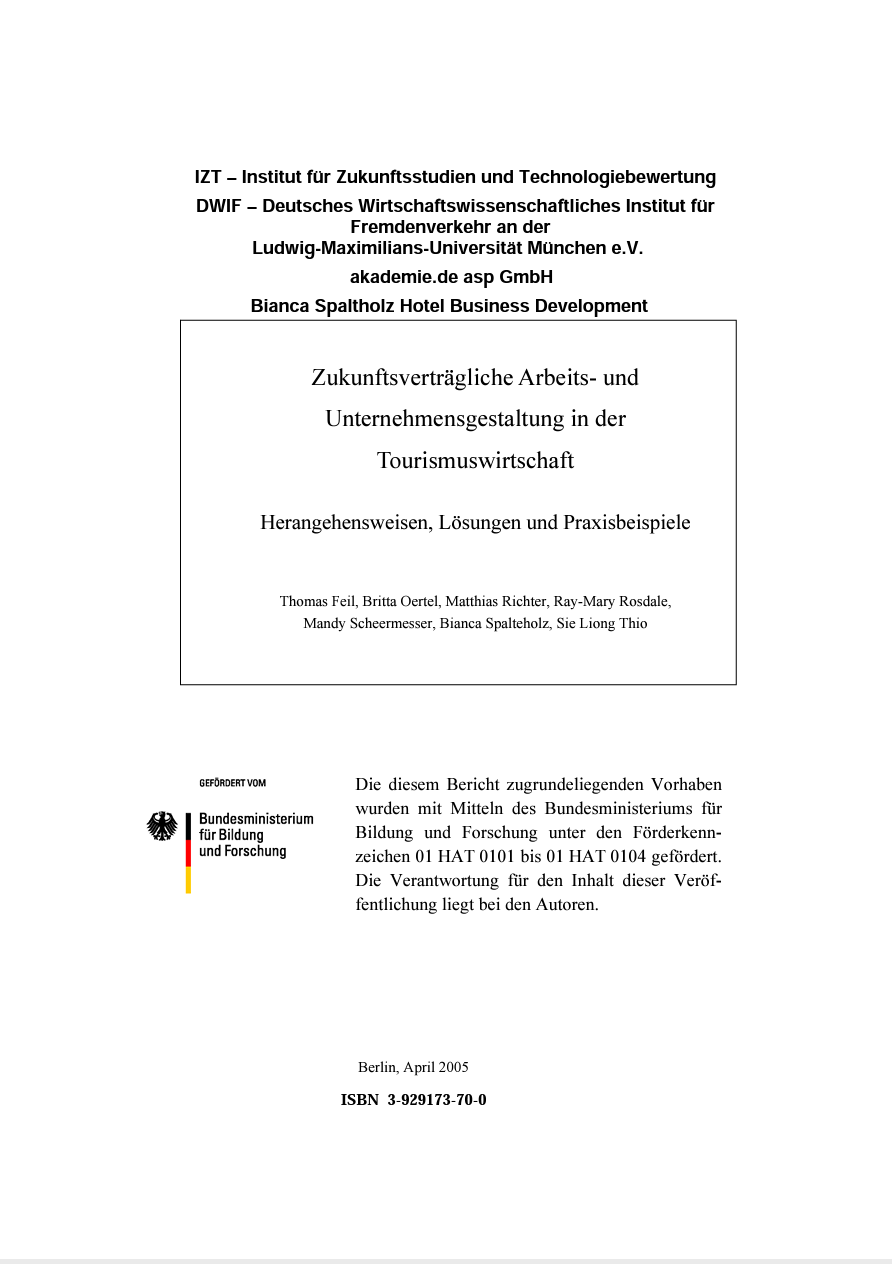Future-compatible work and business design in the tourism industry
Abstract
Despite the growth of the tourism economy, a differentiated view reveals regional differences and in some cases even contradictory developments. It is mainly economically weakly developed regions in peripheral or rural areas that cannot benefit from the generally positive economic development of tourism. These destinations in particular are faced with the need to develop new options for action in view of the global dimensions of international competition and to strengthen regional competitiveness. In doing so, they must take into account that the market is continuously changing and that customer demands are constantly increasing. The need to strengthen the competitiveness of destinations is often contrasted by a comparatively slow pace of innovation and a low propensity to use new technologies for innovative forms of work and business design and process innovation through e-business. These obstacles must be overcome. Within the framework of the research project "Future-compatible work and enterprise design in the tourism industry", approaches to solutions for business and work organisation were developed and tested as models with a targeted mix of research and consulting services. Although technical aspects play a major role, questions were also addressed as to whether and how e-business solutions can better meet the requirements of regional tourism stakeholders and how information and communication technology can contribute to the sustainable design of enterprises. In particular, the use of e-learning and change management were examined and the possibilities of teleworking were discussed.
